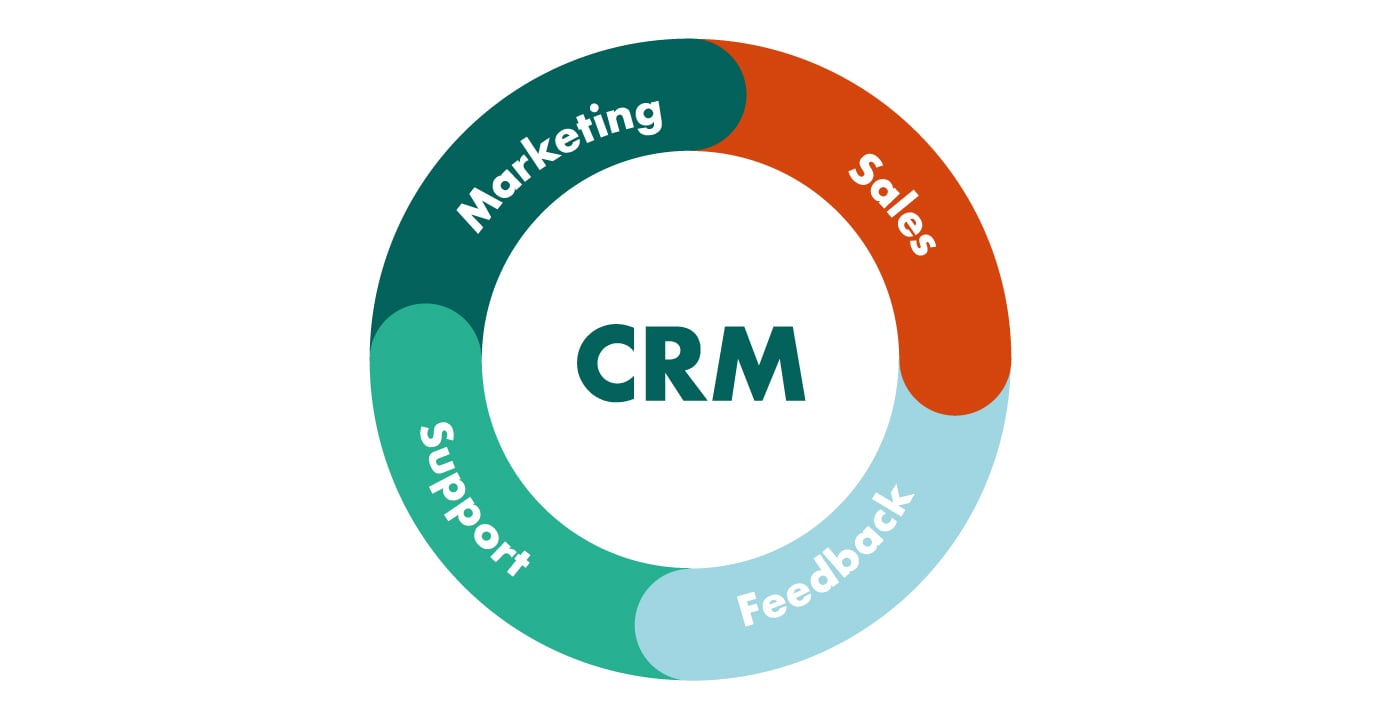The two phases of developing a CRM system are solution selection and implementation. The most important factor to take into account when choosing a CRM solution is if it aligns with the company’s present management system and business plan. Because databases and processing tools are the heart of CRM, the systems built on an IT foundation outperform alternatives. As a result, some people believe that choosing a CRM solution also involves choosing a database and CRM software.
Which database and CRM software should be used for developing CRM in a business is the first thing a manager considers, or how to create the CRM system to suit selected CRM software. Which technology platform is the CRM software based on is the next question. But is technology the most important thing to consider when choosing a CRM system for an enterprise? No, is the answer.

CRM system implementation is to provide information and boost the business process of the enterprise. That’s why technology should be considered a secondary concern and the first priority should be focused on support capability. In other words, it is a method, settling process implemented by CRM system through algorithms used in information processing that be the crucial factor of the quality. In order to make method and information processing work, they have to base on common factors (which are in accordance with rules) and specific factors (which are in accordance with an operating mechanism in the business and management activities of the enterprise).
Implementing a CRM system can help the company’s business operations run more efficiently and give information. Because of this, technology should be viewed as a secondary concern, with support capacity taking precedence. In other words, the approach and settling process used by CRM systems through information processing algorithms would be the main factor in the quality. Method and information processing must be based on both common factors and specific factors in order to function. Web Development Company South Delhi never doubts CRM technology. In order to attain excellence in digital marketing, every company should utilize CRM technology.
A CRM system has no purpose if it cannot provide managers with improved information and enhance enterprise operations. However, the function of IT in CRM is important; it has a significant impact on the viability of projects and the usefulness of solutions, such as the cost of developing and deploying CRM, as well as the degree and capacity of meeting the needs of enterprise managers.
Criteria to select CRM software
Suppliers usually say that their goods are strong and appropriate for any business. Is it actually true that a CRM program’s features show its capacity? Before choosing CRM software, take into account the following oriented criteria-
-Is the CRM application actually suitable for the industry that the business is in? Each place has different and typical characteristics, which results in various demands on client strategy. Along with providing the necessary functions, the appropriate software should also provide users with instructions on how to implement business modules or other similar measures.
-How do CRM contents appear in the software? How much do CRM’s primary capabilities for managing marketing campaigns, sales, and customer service appear in the software? Do these systems have a forecasting feature? What forecasting technique, if any, is used, and how scalable are other forecasting techniques? In other words, can a software supplier design a product that can satisfy the business’s needs based on their understanding of CRM?
-Enterprise resource needs for CRM software implementation and operation maintenance. Enterprises must provide the necessary resources, including money, IT infrastructure, manpower, etc., for both the deployment and ongoing maintenance of CRM software.
-The software’s compatibility with other already-used apps in the company. In order to verify that IT modifications are acceptable, system administrators must review the compatibility with CRM software based on a list of programs, data management systems, etc. provided by manufacturers.
-The capacity to support interactive features and data collection techniques. For instance, a company must seek web-based CRM software if it wants to use the CRM anywhere, anytime.
-Customizability of CRM software. Customizability includes the capacity to alter database structure in addition to configuration, search, and statistics processing algorithms. In order to preserve their integrity, databases typically have almost fixed structures when they are established, making customization difficult. However, altering the structure at a certain level can solve various deployment-related problems without the need for an expensive and involved upgrade.
-The role of technique recommendation and knowledge building. Although this is not a typical CRM function, this is important for most management software. Can the CRM software offer some possible solutions based on the data already available and the management history that is saved in the CRM database?
Additionally, to guarantee CRM effectiveness, additional variables like the complexity of the transfer procedure, usability, security, provider support, etc. should also be taken into account.